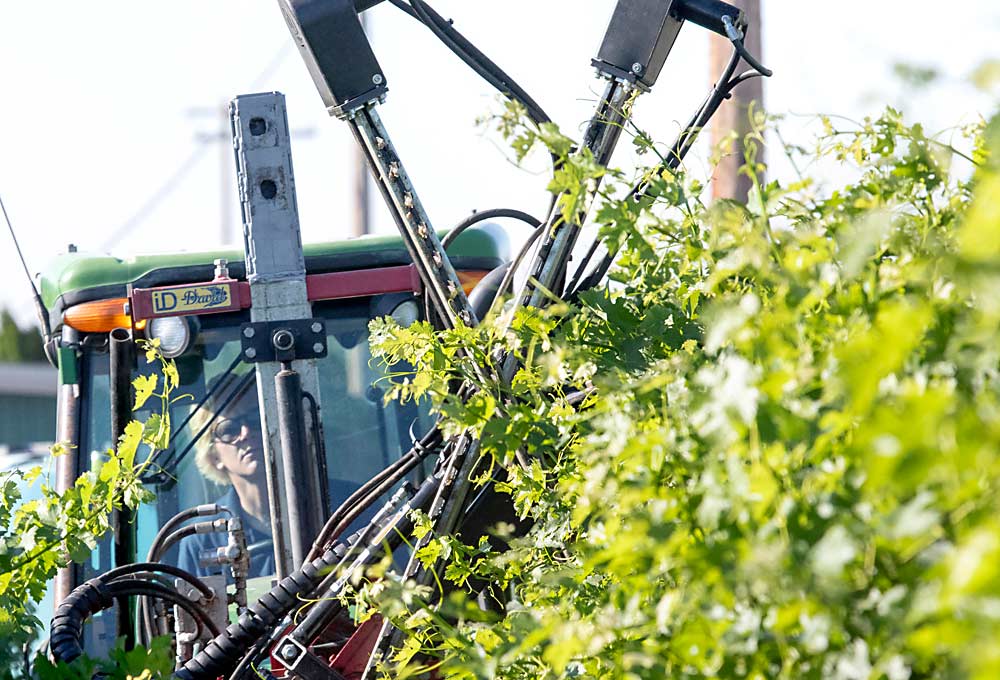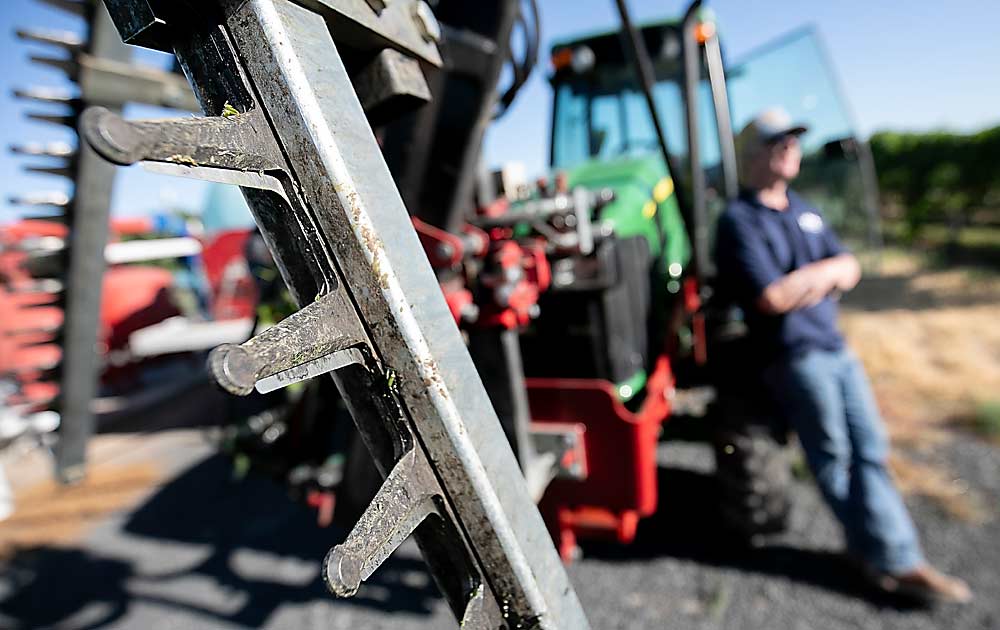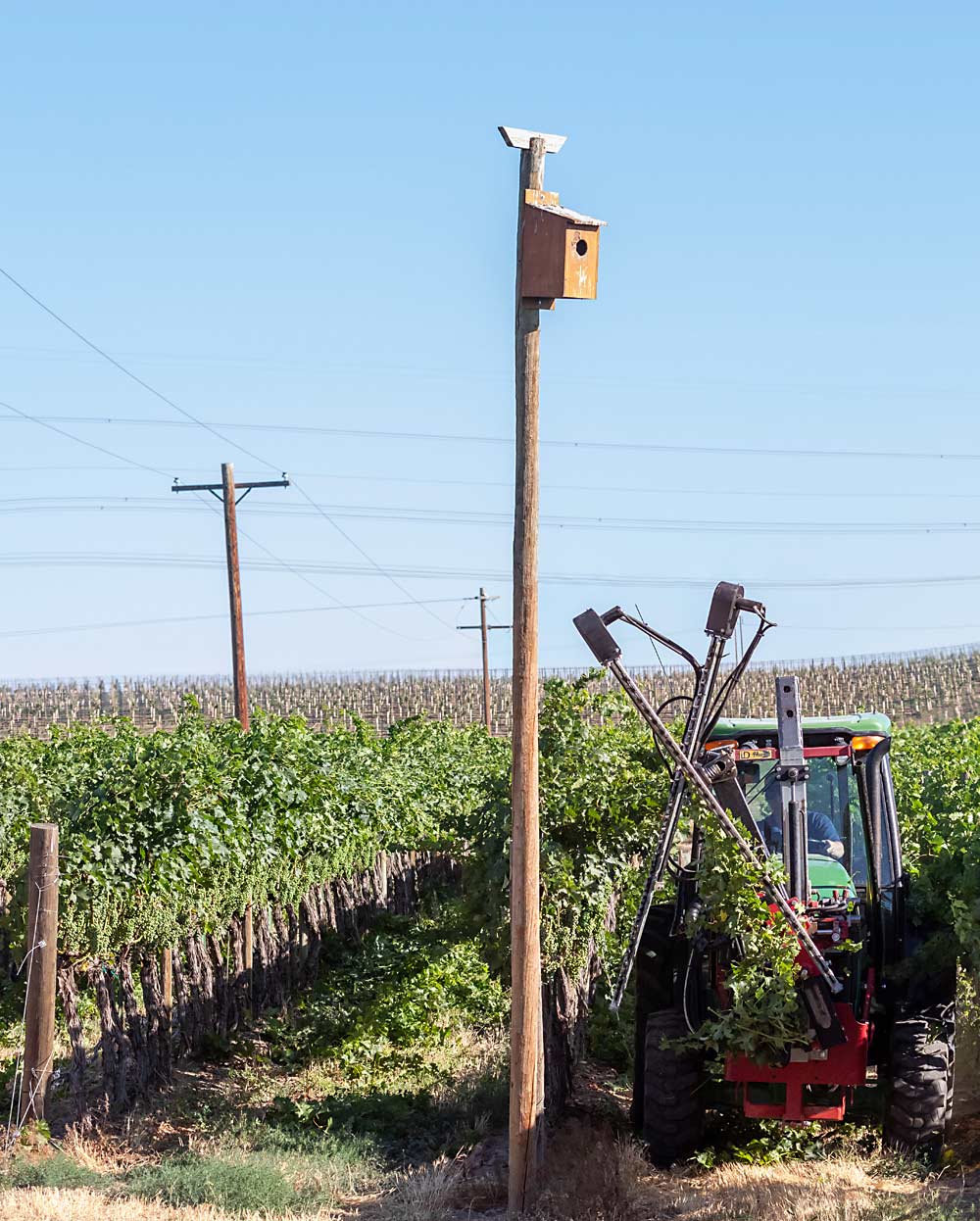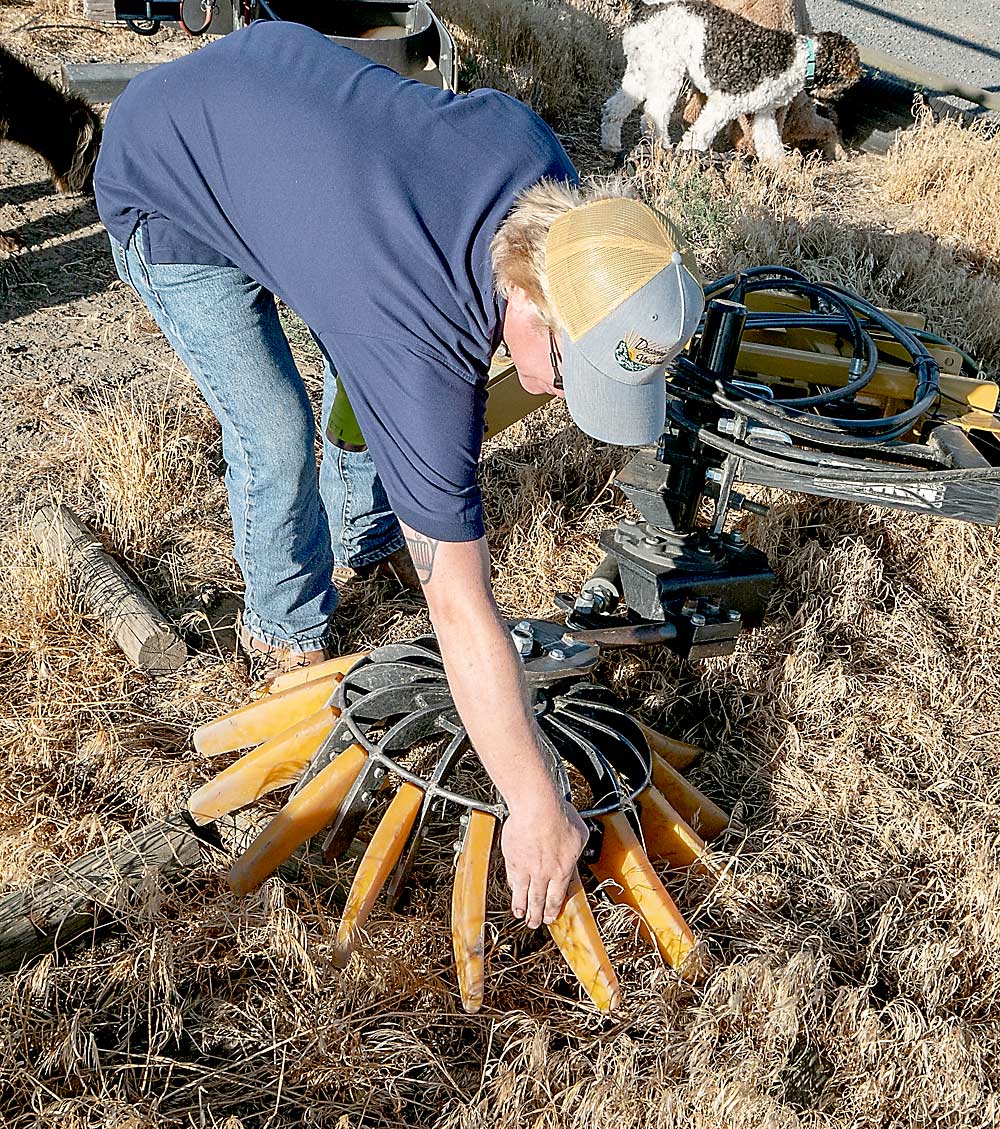
Oliver May’s family purchased a tractor-mounted hedger three years ago for their 40-acre vineyard in Washington’s Horse Heaven Hills.
His dad, Milo, was reluctant.
“It took years to convince him,” Oliver said.
But today, the $16,000 attachment — a big investment for a small farm — has led to more efficient pruning, more consistent canopies and better spray coverage. He estimates it has saved $6,600 each year in labor costs, meaning it has more than paid off this year.
In the era of computer-driven prepruners and smart sprayers, a used tractor attachment seems relatively modest. But the May family’s Discovery Vineyard, located in the hills north of the Columbia River in the south-central part of the state, proves small operations can thrive with mechanical tools boosting efficiency and quality.

Milo has come around and now believes it was a good investment.
“In the long run it’s saved us a lot of money,” he said.
Milo started the vineyard in 2005. For years, he controlled the canopy through careful water management. If cutting was needed, he handled it himself with handheld sheers.
However, recent wet springs and hot summers have thrown that approach out of whack, while their labor costs increased and their acreage grew. They purchased some handheld, gas-powered hedgers, but that wasn’t enough.
The tractor-mounted hedger was a big jump.
“When you’re small like we are, you really have to be careful with your purchases,” said Milo, a retired dental laboratory owner. Oliver manages the farm now, though Milo still chips in with physical chores while his wife, Kay, helps balance the books.
The Mays keep a core group of nine year-round employees. To hedge by hand, they had to stretch their arms up over their heads to expose the east side of the canopy to morning sunshine.

“I don’t really like asking people to do that kind of work,” Oliver said. “It’s brutal.”
Oliver’s employees — and his father, for that matter — now spend their hours on less physically taxing chores. The hedger has allowed them to avoid contracting temporary workers and enabled them to grow with the crew they have. In the spring, they plan to plant another 16 acres of wine grapes.
With Oliver running the hedger, the workers thin shoots, leaves and fruit by hand, which the family’s several winemaking customers like.
Other investments in tractor attachments are paying off as well. One of them, powered only by the momentum of the tractor, buries weeds under a berm of dirt right under the canopy. A second attachment later chews up the choked roots and flattens the hill. Even using the water bar attachment to reduce dust on his gravel roads helps keep mites in check.

“We have found a few areas we can mechanize and not sacrifice our quality,” Oliver said.
If anything, mechanical hedging likely will improve grape quality because it will allow for more precise timing, said Sadie Drury, general manager of North Slope Management, a Walla Walla vineyard operations company. She recommends deleafing as the next mechanization step.
Oliver interned at North Slope shortly after his time at Walla Walla Community College, and Drury has offered his family advice over the years. The customers they have in common think highly of Discovery Vineyard, Drury said.
Hedging and deleafing also are relatively easy sells to winery customers who ask for hand labor, she said. With a reasonable discussion, they usually see how saving expensive man-hours for more sensitive tasks aligns with their goals.
“My customers have all gotten behind it,” Drury said.

—by Ross Courtney






Leave A Comment